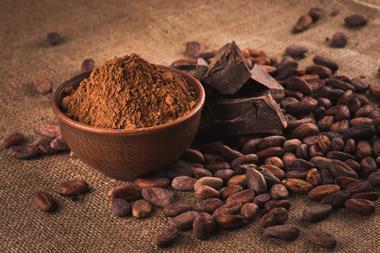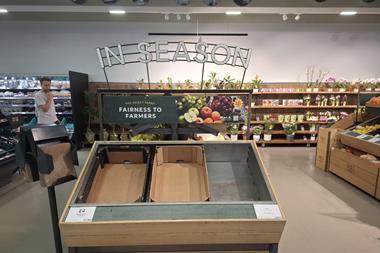
Food inflation hit a one-year high in May as fresh foods like beef, milk, and eggs all grew more expensive.
Food prices rose 2.8% in May, marking the fourth consecutive month of rising prices and the highest level since May last year, according to the British Retail Consortium and NIQ.
“Fresh foods were the main driver, and red meat eaters may have noticed their steak got a little more expensive as wholesale beef prices increased,” said BRC CEO Helen Dickinson.
Supermarket beef products became 8.2% more expensive on average in the past two months, according to analysis by the Grocer earlier this month. By contrast, ambient food prices fell 3.3% after a 3.7% rise in April, said the BRC and NIQ.
Overall shop prices were down 0.1% in May compared with the same month last year, matching an equivalent rate of deflation in April.
“Non-food prices remained in deflation, but this slowed in categories such as fashion and furniture as retailers began to unwind heavy promotional activity,” said Dickinson.
The latest data reflects the second month since the government’s higher taxes on employers came into force. Numerous businesses have warned they will have to raise prices and cut employee numbers to help absorb the cost.
Yet while the Bank of England said last month that higher-than-expected food inflation at the start of the year was “possibly [due to] domestic factors, such as labour costs”, the picture is still not entirely clear.
Some economists have suggested that National Insurance represents less than 1% of GDP and so it may not have the inflationary impact some surveys have suggested.
Mike Watkins, head of retailer and business insight at NIQ, said: “Whilst shoppers are seeing savings at the checkout as retailers increase promotional activity, increasing prices is still an extra challenge to consumer spending alongside rising household bills.
“And if consumer confidence remains weak as looks likely, then retailers may have to work harder to encourage shoppers to spend over the summer.”



















No comments yet